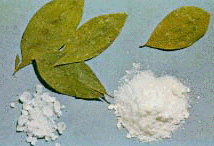Cocaine labs are rare in Massachusetts. By the time the drug makes it into the Commonwealth it has already been processed and often diluted with cutting agents. Large scale cocaine production efforts are typically performed in the countries where the drug originates, usually Colombia and Bolivia. Thus, we almost never see cocaine manufacturing charges here. Rather, possession, possession with intent, distribution and trafficking are the cocaine related crimes most frequently prosecuted. So it was quite surprising to pick up a newspaper and see that local police find a cocaine lab and arrest a 51 year old man.
Was There Probable Cause to Get a Search Warrant?
Here are the facts that the district attorney will argue in support of the issuance of a search warrant. About six months ago the defendant Christopher Kelleher’s home was searched. Apparently there was not enough evidence found during the search to support serious criminal charges in that all that was located was drug residue and some chemicals. There had been calls made by neighbors complaining about heavy foot traffic in and out of the defendant’s home and suspicious activities at the home. Then, just the other day medical personnel responded to Kelleher’s home for a medical emergency. Police were on hand as well. An officer saw a strange haze in the kitchen and entered the home to check it out. He then noticed what he thought was a drug lab. A search warrant subsequently issued.
So here is what concerns me. Officers who respond to medical emergencies along with EMTs are usually patrol officers. These officers lack the training and experience of drug control detectives. Their drug recognition skills are minimal. They have little or no training in drug manufacturing or drug processing. This is particularly true in the case of cocaine labs. There are none around here so what would lead the responding officer to believe that a cocaine processing or manufacturing operation existed? Probably nothing. It is more likely that the officer used Kelleher’s unfortunate medical issue as an opportunity to snoop around his home. Furthermore, what was this so called gray haze in the home? Did it have an odor? What was it consistent with? He probably cannot answer these questions with any degree of credibility and this might get the defendant some relief in moving to suppress the search.
How Serious is the Crime of Trafficking 70 Grams of Cocaine?
Apparently the police found 2.5 grams of cocaine in Kelleher’s home. This is roughly 70 grams. The sentence for a conviction of this crime is 3 ½ to 20 years in state prison. At times district attorneys negotiate reduced sentences in exchange for a change of plea. Whether this case warrants that or not depends on Kelleher’s criminal record, the strength of the prosecution’s case from evidentiary and factual standpoints. Regardless, prosecutors in Massachusetts view drug trafficking cases as extremely serious matters.
The Law Offices of Stephen Neyman, PC has been defending drug trafficking cases for almost three decades. There is always a defense to a criminal case. Call us at 617-263-6800 or email us if you want us to get started preparing your defense.
 Massachusetts Criminal Defense Attorney Blog
Massachusetts Criminal Defense Attorney Blog

